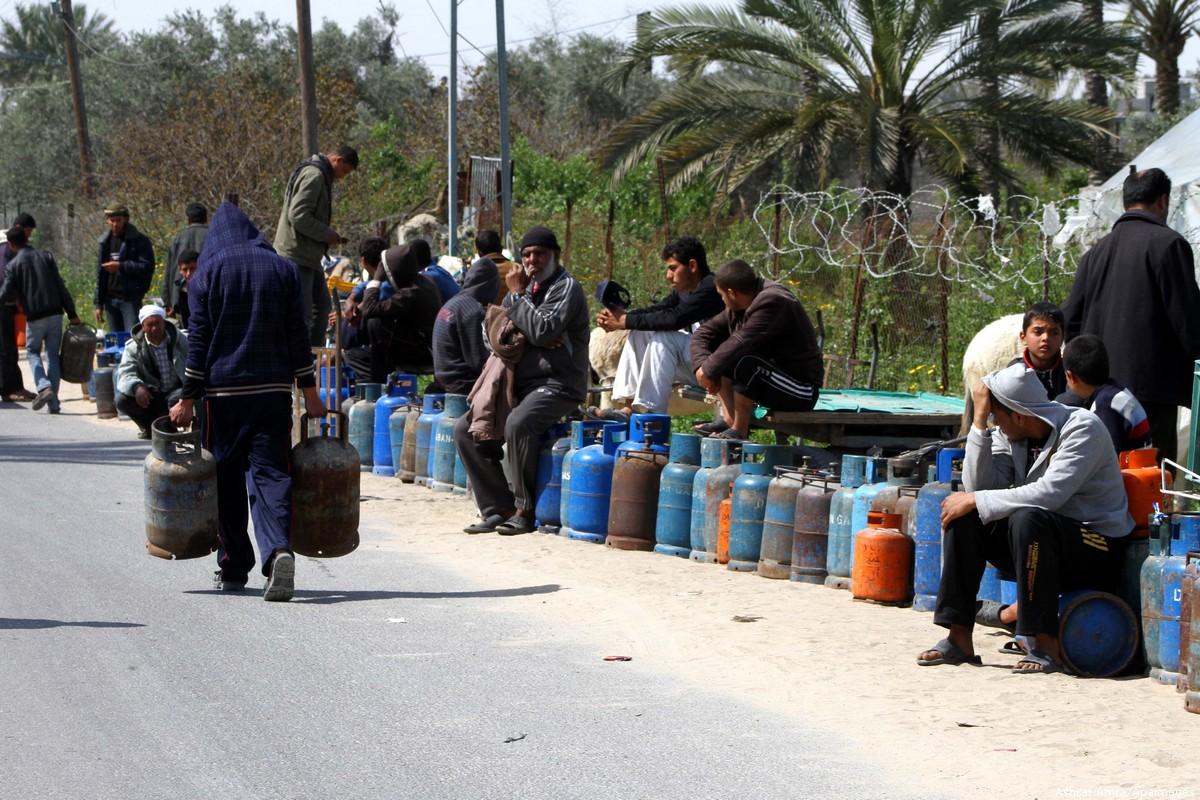Gaza runs out of cooking gas after Israel closes crossing

Gaza has run out of cooking gas following the Israeli closure of the Kerem Shalom crossing, the only commercial crossing allowing goods into the besieged Strip.
The announcement came from cooking gas distribution companies in the besieged Gaza Strip yesterday, with owners telling Wafa that “the companies have run out of backup cooking gas” less than two weeks after Israel’s closure of the crossing.
On 9 July Israeli Prime Minister Benjamin Netanyahu announced that Israel would close the Kerem Shalom (Karm Abu Salem) crossing, situated on the southern tip of the Gaza Strip. He cited the launching of incendiary kites and balloons as justification for the tightening of Israel’s siege on the territory. The move blocked commercial supplies that normally pass through the crossing into the enclave, although some humanitarian aid was set to be allowed through.
However, on 17 July, Israel announced the full closure of the crossing. Whereas Israel had previously allowed the entry of some 300 to 400 truckloads of supplies into Gaza, Israeli authorities reduced the number of truckloads entering Gaza to less than 150. Under the new rules, fishermen in Gaza were also limited to fishing just nine kilometres out to sea, rather than the 14 kilometres previously permitted.
International observers condemned Israel’s closure of the Kerem Shalom crossing. UN Special Coordinator for the Middle East Peace Process, Nicolay Mladenov, expressed concern about the new restrictions, saying that “humanitarian assistance is no substitute for commerce and trade. I urge the [Israeli] authorities to reverse this decision.”
Israeli human rights NGO Gisha also urged Netanyahu and his Defence Minister, Avigdor Lieberman, to “rescind the severe restrictions on the entrance of goods and the sweeping prohibition on exit of goods via the Kerem Shalom Crossing to the Gaza Strip.” The NGO had previously slammed the decision as “immoral and illegal”, calling the move “a sweeping measure of collective punishment that calls to mind past days of outright economic warfare on Gaza’s civilian population.”
Palestine’s Islamic Jihad movement called the move to close the crossing a “declaration of war”, but added that “this will not push the Palestinians to stop their support for their resistance.”
The cooking gas shortage caused by the closure of the crossing will further compound the already dire economic and social situation in Gaza, a result of the Israeli siege of the Strip which has been ongoing since 2007.
On Wednesday, the Popular Committee for Ending Gaza Siege said that 80 per cent of factories in the Strip have shut down either partially or completely, with 300,000 unemployed workers and thousands of jobless graduates. Head of the committee, Jamal Al-Khodari, said that Israel aims to “completely destroy the Gazan economy” by squeezing imports and exports to and from the enclave.
On Tuesday, Palestinian patients at Gaza City’s hospital staged a sit-in to raised awareness of the shortages facing medical facilities in the Strip. Speakers at the sit-in said that Gaza’s hospitals suffer from shortages in medicines, lab equipment and testing materials as a result of the Israeli siege and the Palestinian Authority’s refusal to lift sanctions on the territory.
Source: Middle East Monitor

WRITE YOUR COMMENT